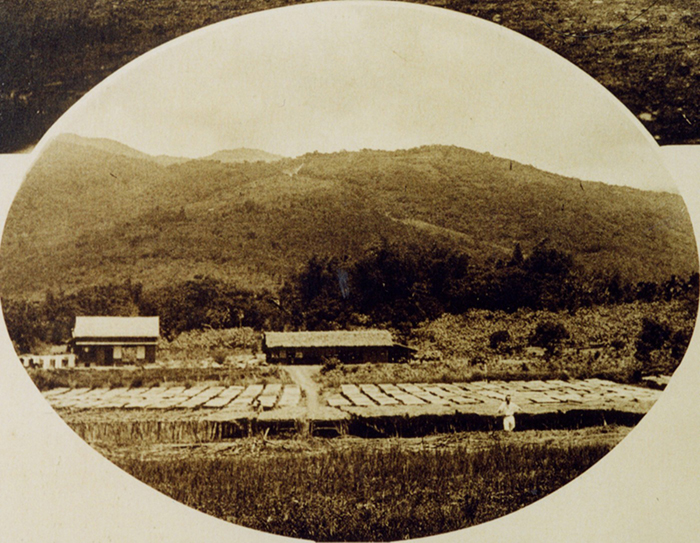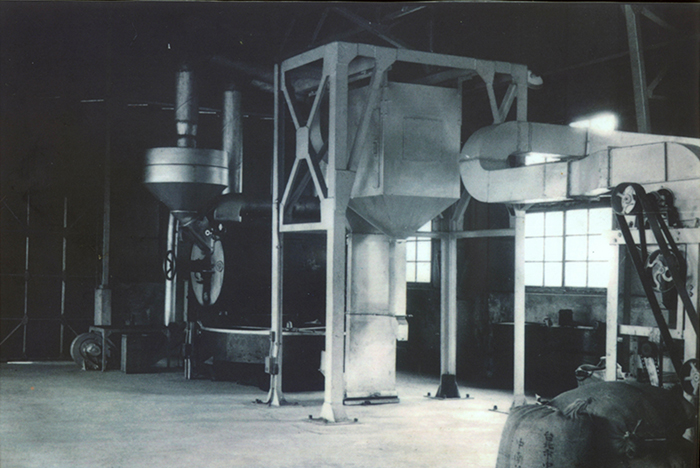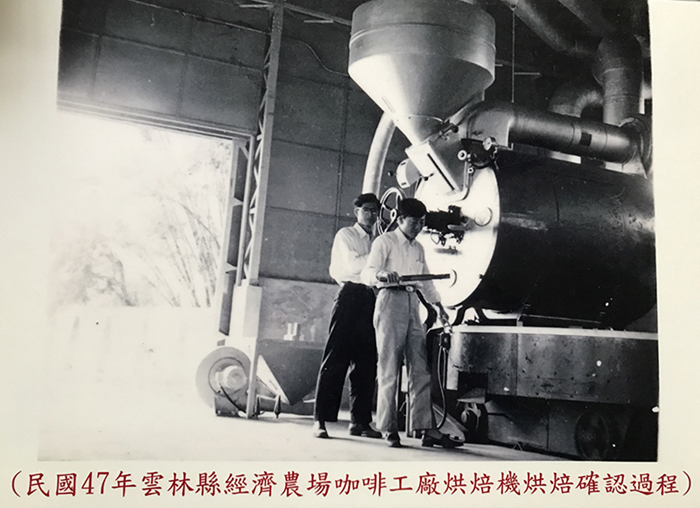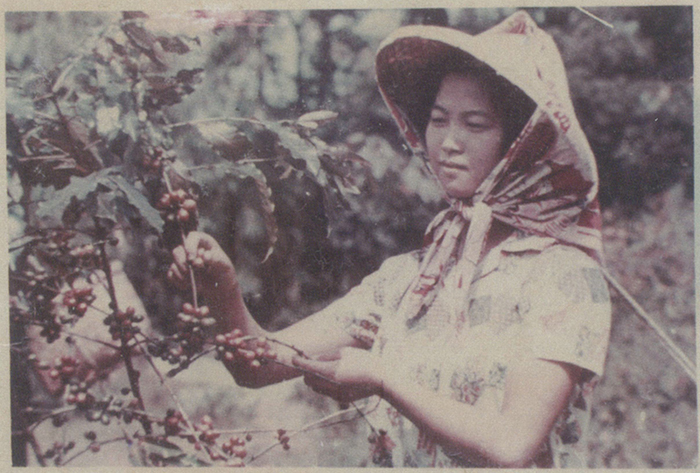The first recorded instance of coffee cultivation in Taiwan came from Ding Ri-Chang, a governor of Fujian under Qing Empire. In his official decree, Ding specifically selected coffee as a commercial crop to be planted by the indigenous tribes of Taitung and Pingtung in Taiwan.
James Tait, a merchant with the British East India Company, imported coffee seedlings and seeds to be planted in Sanxia by Taiwanese farmers.
The First Sino-Japanese War broke out, resulting in Qing Empire's defeat.
Qing Empire and Japan signed the Treaty of Shimonoseki, ceding Taiwan to Japan as a territory.
Officials from Taipei County's Office of Agriculture and Cultivation took coffee samples and confirmed the ongoing cultivation of coffee in Taiwan at Leng Shui Keng.
Japanese Government-General of Taiwan founded Hengchung Tropical Nursery Ground and planted different cultivars of coffee

Taiwanese Coffee Farm in Section 12 of the Port Seed-Tree Farm (1911, National Taiwan University Library)

Planting Coffee in Toyota Village (1929, Source: National Taiwan University Library)
Japanese corporations began heavy investment in coffee cultivation.

Sumita Coffee Farm at Wehe, Hualien (1933, source: National Taiwan Coffee Library)
The Pacific War broke out.
Coffee farmland peaked at 967.45 hectares and number of coffee trees planted peaked at 1,961,072. The numbers started to decrease yearly from here.
Japan unconditionally surrendered to the allied forces in World War II. Taiwan was taken over by Republic of China.
The retreat of the government of Republic of China to Taiwan.
Affected by the Pacific War and the postwar political instability, coffee production in Taiwan decreased to zero by 1950.
Sino-American Joint Commission on Rural Reconstruction started initiatives to promote coffee cultivation and export at Gukeng Township in Yunlin County.
Yunlin County Government, in collaboration with the Sino-American Joint Commission on Rural Reconstruction, set up the biggest post-harvesting coffee mill in Southeast Asia.

Roaster at Yunlin Economic Farm Coffee Mill (source: Taiwan Cultured Memory Bank. Permission to reproduce given by Yunlin Country Culture and Tourism Office)

Chen Shou-Yi and The Roaster (1958, source: Taiwan Culture Memory Bank. Permission to reproduce given by Yunlin County Culture and Tourism Office)

Liu Yue-Xiang in a Photoshoot for the Economic Farm (1964, source: Liu Yi-Teng)
US aid ended.
After the end of US aid in the Taiwan, the world saw a surge of global coffee production and a decrease of tariffs in general. Taiwanese coffee was no longer able to compete on the international market and the coffee mill was shut down.